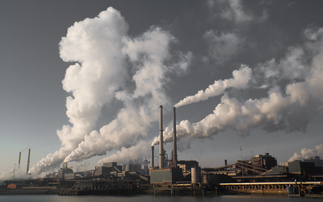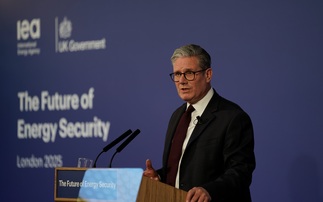Country will cut emissions by 43 per cent by 2030 against a 2005 baseline in latest wave of climate action plans
Brazil has become the latest country to reveal its climate action plan, pledging to slash its emissions by up to 43 per cent by 2030.
In its Intended Nationally Determined Contribution (INDC), submitted this morning ahead of December's Paris Climate Summit, Brazil said it would cut emissions by 37 per cent by 2025, with the ambition to reach a 43 per cent reduction by 2030. Both targets will be measured against a 2005 baseline.
To achieve its carbon-cutting goals, Brazil plans to boost renewable energy supply, halt illegal deforestation and develop low-carbon infrastructure.
Under the plan, renewables will make up 45 per cent of the country's total energy mix by 2030, up from 40 per cent today. Brazil also plans to increase the share of sustainable biofuels by 18 per cent and boost the share of renewables from non-hydropower sources to at least 23 per cent by 2030.
The country, which has been at the centre of global efforts to halt widespread illegal deforestation, also promised to halt illegal deforestation and reforest 12 million hectares of land by 2030.
Rachel Biderman, director of the World Resources Institute in Brazil, welcomed the announcement, which she said showed Brazil was playing "a productive role" in the global effort to fight climate change.
"Brazil's climate plan marks the first time a major developing country has committed to an absolute reduction of emissions. This is an important shift because it offers greater certainty that emissions can be cut even as Brazil's economy expands," she said in a statement.
"It's encouraging to see Brazil focus on growing a low-carbon economy through continued investment in renewable energy. Brazil should rapidly shift away from high-carbon energy investment in line with the global efforts to slow global warming."
However, she warned that reforestation pledge was "notably weaker" than what could be achieved.
"In addition, the zero illegal deforestation goal is actually a step back from the country's previous commitments," she added. "Curbing emissions from agricultural lands will depend in part on greater investment in low-carbon practices."
See what countries have pledged so far in our interactive map
Brazil's INDC is the latest in a wave of commitments submitted to the United Nations climate change secretariat in the remaining few weeks before the last round of preliminary talks kick off in Bonn on 19 October. In the past week, formal submissions have been received from 18 nations including South Africa, Bangladesh, Mongolia and the Central African Republic.
South Africa - Africa's leading carbon polluter - pledged to "bend the curve" of its emissions, peaking its emissions by 2025. Emissions would then remain stable for a decade before starting to fall, it said. The pledge bucks the traditional convention of submitting specific carbon reduction goals, and the country said its overriding development aims were to tackle poverty and inequality in the country.
Meanwhile, Bangladesh pledged to cut its carbon emissions by five per cent within 15 years compared to a business as usual scenario. However, it said that if further international support was provided to help developing countries adapt to and mitigate the effects of climate change, it would raise this ambition to a 15 per cent reduction in carbon emission by 2030, compared to business as usual.
Climate finance has been a major sticking point in the negotiations so far, with developing countries such as Bangladesh seeking financial help and practical support from richer countries to develop their economies in a low-carbon, climate-resilient way.
However, recent announcements from both China and the US suggest a breakthrough on the issue may be imminent. On Friday China unveiled a $3.1bn investment for helping developing countries tackle the worst impacts of climate change, while the UK doubled its climate aid commitment to £5.8bn, to be spread out over the next five years.
This article is part of BusinessGreen's Road to Paris hub, hosted in association with PwC.










